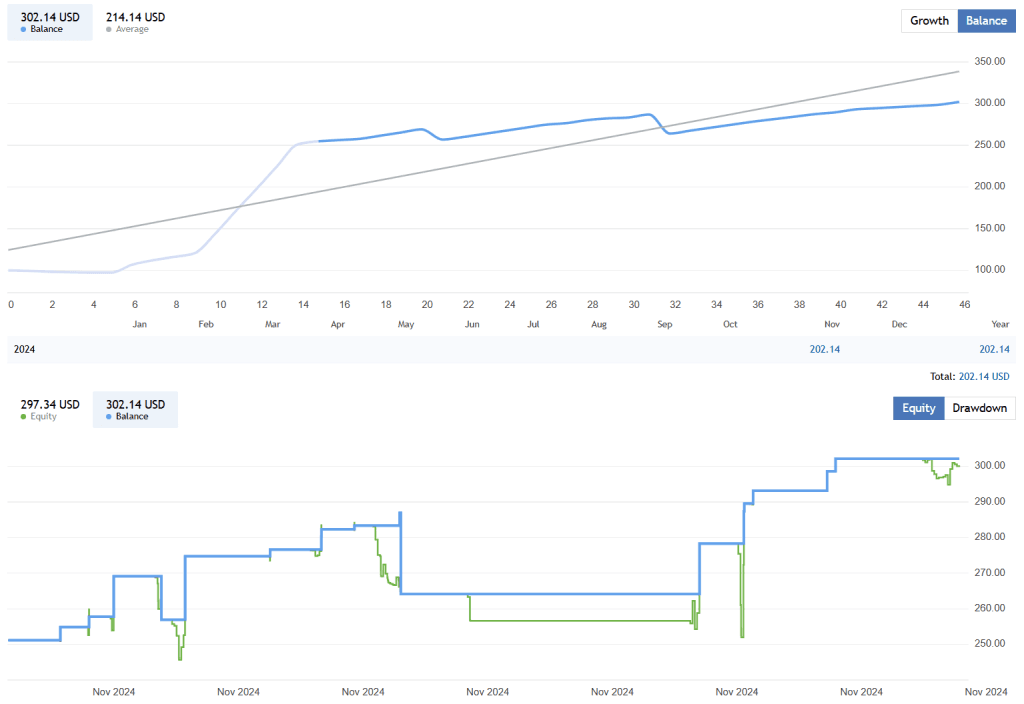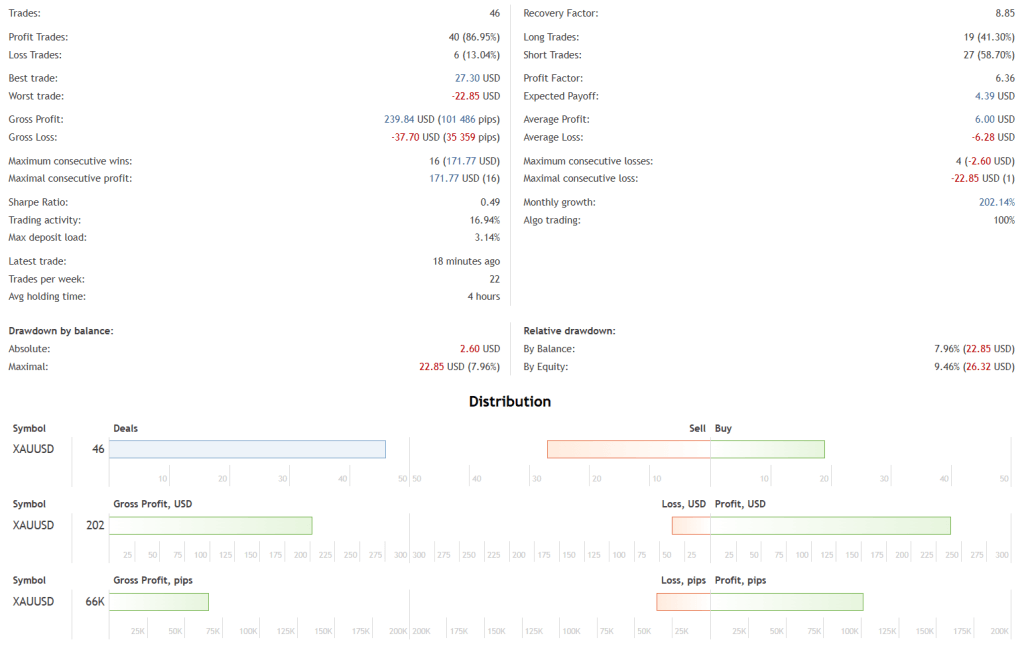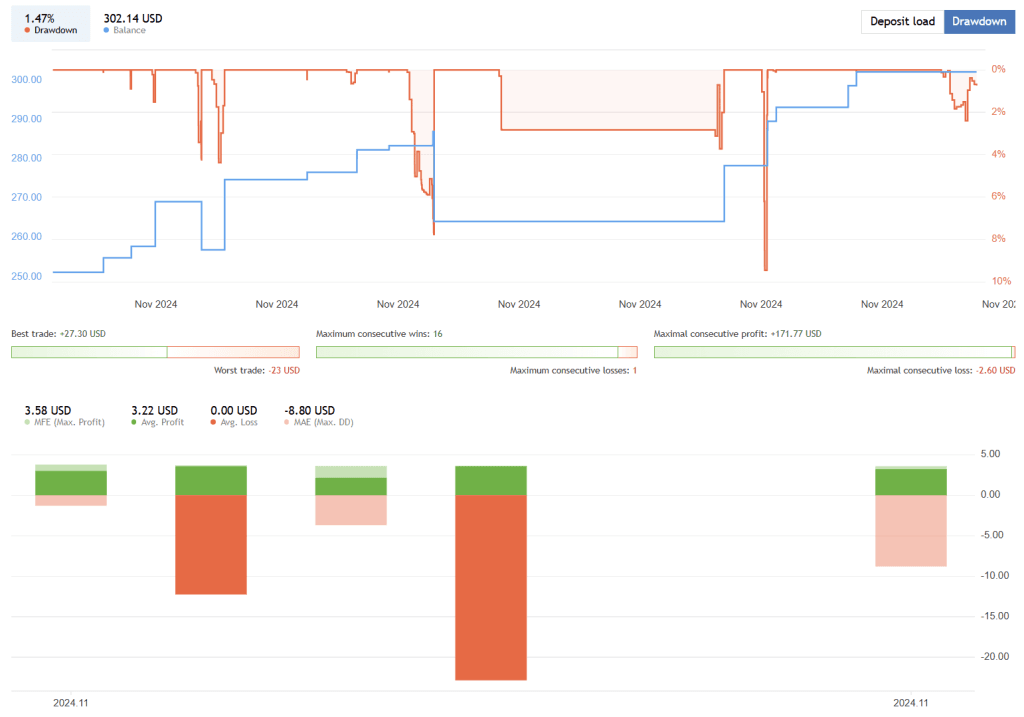This Gold Scalping Expert is an automated Expert Advisor MT4 specially developed for the XAUUSD(Gold) pair. Historically known as a safe-haven asset, gold is one of the most liquid and frequently traded instruments globally. This article provides an objective analysis of its features and functionalities.
The Gold Scalping Expert Advisor is an advanced algorithm designed to capitalize on the volatility of gold during significant market events, such as geopolitical news, economic shifts, or even pandemics. It leverages the popular Zig-Zag indicator to identify key turning points in the market, setting up pending orders at these levels. The pending orders are triggered when the price breaks through these points, allowing for effective breakout trading.
One of the key features of this Expert Advisor MT4 is its intelligent risk management system. The EA utilizes a dynamic stop loss and trailing stop to protect the account, ensuring that trades are managed efficiently without relying on risky strategies like martingale or grid. This smart risk management ensures that your capital is safeguarded, even during unpredictable market conditions.
Please test in a demo account first for at least a week. Also, please familiarize yourself and understand how this Gold Scalping EA works, then only use it in a real account.
Recommendations for this Expert Advisor MT4
- Minimum Account Balance of 300$.
- The EA was specially made to work on XAUUSD.
- It works best on M15. (Work on any TimeFrame)
- This Expert Advisor MT4 should work on VPS continuously to reach stable results. So we recommend running gold scalping EA on a reliable VPS (Reliable and Trusted FOREX VPS – MyfxVPS)
- The EA is NOT sensitive to spread and slippage. But We advise using a good ECN broker (Find the Perfect Broker For You Here)
Download a Collection of Indicators, Courses, and EA for FREE
Gold Scalping Expert Control Panel Explained

- Trade Buy/Sell – By clicking the “Trade Buy” or “Trade Sell” button, you can disable new buy or sell orders for the next series of trades. Once the button is red, Gold Scalping Expert will not open any new orders in that direction but will continue to manage any open positions until they hit the Take Profit level. Once the current series closes, the EA will stop placing orders in that direction, giving users control over when to initiate buy or sell positions.
- Pause Buy/Sell – The “Pause Buy” and “Pause Sell” buttons allow you to pause all buy or sell positions, respectively. When activated, the EA will not open new orders in the paused direction until the button is clicked again to resume trading. This feature offers manual control over your trades while allowing the EA to manage open positions.
- New Series – Clicking this button will allow the EA to enter new orders if there are no open trades. If there are open positions, the EA will continue trading until the current series is closed. Once the series ends, no new orders will be placed unless the button is clicked again.
It is advised to close any pending orders before the market closes on Friday to prevent any open trades over the weekend. Clicking the Close Pending button ensures all pending orders are closed.




- Read More Forex Plutus – Best Premium Indicator

Conclusion
The Gold Scalping Expert Advisor is a comprehensive tool for traders looking to exploit gold’s price movements during major market events. Its ability to manage trades effectively through features like the dynamic stop loss, trailing stop, and easy-to-use control panel offers a risk-conscious approach to breakout trading. Whether you are an experienced trader or new to algorithmic trading, this Expert Advisor MT4 can be an effective addition to your trading strategy, providing control over your trades while managing risk intelligently.






